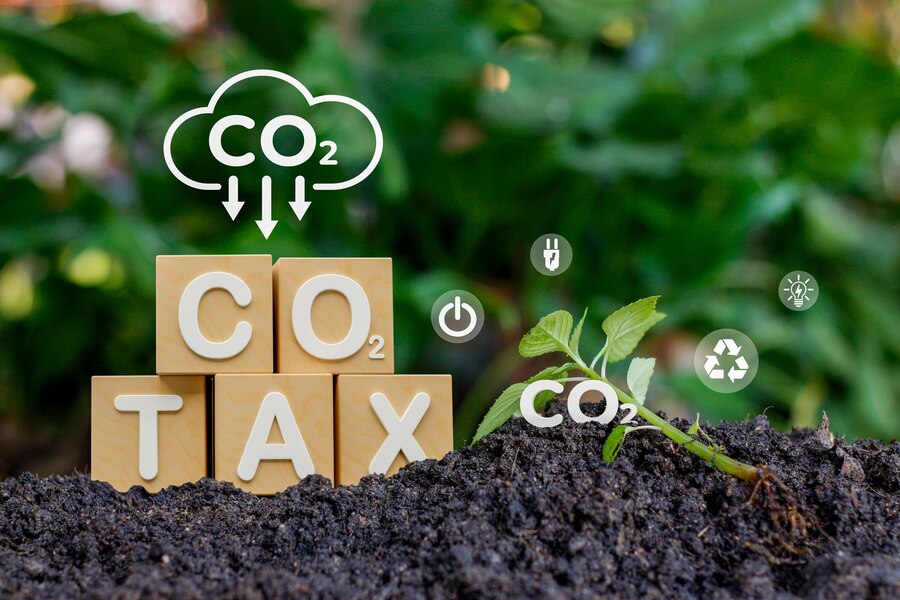Jakarta, August 30, 2024 – As the climate crisis becomes more apparent, the Government of Indonesia is committed to reducing emissions to contribute to achieving net zero emissions (NZE) by 2060 or sooner. One of these commitments is the implementation of a carbon tax.
Carbon tax is a tax imposed on any product or goods that produce emissions, according to the Ministry of Finance of the Republic of Indonesia. From an environmental aspect, the implementation of a carbon tax serves as a fee (levy) for greenhouse gas (GHG) emissions from fossil fuels that cause global warming. From the economic aspect, the implementation of carbon tax can increase state revenue, especially in emission-producing sectors that have not been subject to emission tax. From the business aspect, carbon tax can be used as a tool to encourage more environmentally friendly and sustainable business practices.
The main purpose of the carbon tax is to reduce the negative impacts of climate change and improve environmental quality. The carbon tax policy should be implemented since April 1, 2022. The carbon tax policy is in accordance with the mandate of Law Number 7 of 2021 concerning Harmonization of Tax Regulations. Meanwhile, the provisions for the implementation of rights and fulfillment of taxpayer obligations are regulated in Government Regulation (PP) Number 50 of 2022 concerning Procedures for Implementing Rights and Fulfilling Tax Obligations. However, the implementation of carbon tax is postponed and will take effect in 2025, one of which is due to considering the stability of the national economy.
The imposition of carbon tax is directed to entities or companies engaged in coal fired power plants (CFPP) that use coal as the main fuel. Coal-fired power plants are the first target because this sector is one of the largest contributors to carbon emissions in Indonesia. Later, the use of funds from the carbon tax is to encourage the development and utilization of clean or renewable energy.
Several countries in the world have also implemented carbon tax. Based on Statista data, Uruguay has the highest carbon tax rate worldwide as of April 2024, which is 167 US dollars per metric ton of CO₂ equivalent (USD/tCO₂e). Despite being the most expensive worldwide, Uruguay’s carbon tax only covers about five percent of the country’s greenhouse gas emissions. Meanwhile, Finland, the first country in the world to implement a carbon tax, has a rate of nearly 100 USD/tCO₂e.
Wira A Swadana, Green Economy Program Manager, Institute for Essential Services Reform (IESR), said Indonesia should have developed and discussed carbon tax with multiple parties. This is crucial for efforts to provide disincentives to businesses that produce a lot of emissions through fiscal instruments, especially through carbon taxes.
“With a thorough discussion with various parties, Indonesia is expected to provide the right carbon tax value to provide a deterrent effect to businesses that produce carbon emissions so that they can support the achievement of NZE more quickly. IESR sees that the value currently proposed by the government, which is around USD 2/tCO2e based on the Ministry of Finance, has not been able to produce a deterrent effect for entrepreneurs because the value is still cheap,” said Wira.
According to Indonesia Energy Transition Outlook (IETO) 2024 by IESR, in line with international practices, the Indonesian government should include a gradual increase in carbon tax rates that outlines milestones and targets for each adjustment. On the other hand, there should also be a road map for carbon tax implementation. With the road map, the industry will also be able to prepare for the implementation.

